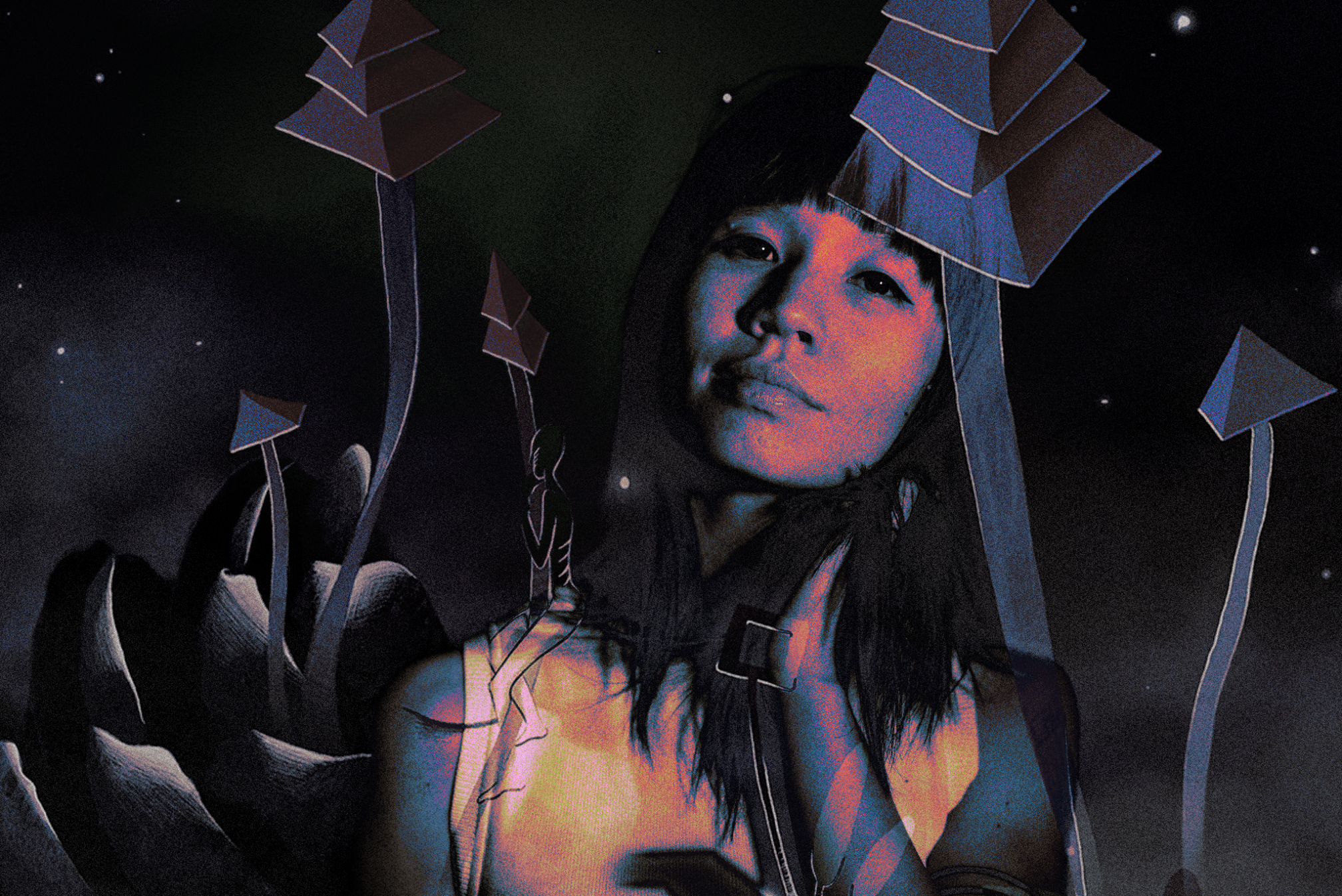 Interviews
Interviews
Artist Spotlight: Polygonia's celestial approach to building "cloud castles with sound"
The Munich-based artist shares thoughts on her roots, studio aesthetics and her latest release inspired by 'Monkey King: Journey to the West'
Co-founder of the IO collective in Munich, Polygonia is a multi-hyphenate artist who is on a limitless expedition to explore intimate, emotion-inducing music that intersects her love for nature and technology.
Taking that symbiosis as an underlying vehicle for her creative and collaborative endeavours, the Munich-based artist of Chinese heritage has impressed with her mesmerising polyrhythmic soundscape. Her live sets and productions exude deep, cerebral-healing qualities, whilst sounding cutting edge.
Boundaries have no meaning to Lindsey Wang aka Polygonia; you’ll find her collaborating with films, museums, galleries, musicians, technologists all whilst expanding her own skill sets. This interview feature shines a spotlight on Wang around her latest release, ‘Da Nao Tian Gong‘, that is inspired by the prolific Chinese classic novel ‘Monkey King: Journey to the West’. For the art direction, Mixmag Asia’s Visual Director Rachelle Hristenko has also adapted Wang’s original illustrations.
Arun Ramanathan speaks to the fascinating artist who is captivating the world through harmonic connectivity — dive into the world of Polygonia below.
You've been very busy with multiple projects and endeavours, including recent collaborative outputs and a healthy pipeline of forthcoming releases. Before we dive into more, how are you doing and how has 2024 started for you?
I am doing fine, although my mood is a bit influenced by all the things which are going on in the world politically at the moment.
I started my 2024 with a couple of lovely gigs, building my new website which I just finalised and some planning of the projects which I have in my head for this year with my label and releases.
What do you love about living in Munich?
Living in Munich keeps my mind calm and allows me to concentrate on my music. I grew up in this city, so it is definitely my hometown. Next to my mother, I have all my beloved label colleagues and also my trio mates very close to me. I am living in a beautiful area right next to the little river ‘Isar’, I have to walk 3 minutes to put my feet in the water and go swimming there. It’s a nature protection area, perfect for walks with our dog. I feel so blessed to have this paradise-like bubble with Blitz Club close by which I can reach by bike within 15 minutes. What a dream.
Next to all that, I really love how tight nit the people working in culture are in this city. It feels like a huge village with a lot of talented people in it.
And, how connected are you to your roots in China?
I speak and understand the language quite well, but my writing and reading are not really fluent. The Chinese culture and language feel very close to my heart, the food is my favourite in the whole world for sure. The contact to my Chinese family is not that strong which is why I am searching for different ways to keep my mental and emotional connection to my roots. I am really fascinated by ancient Chinese culture, I love the minorities and their traditions and not to forget the incredible nature of this country. Unfortunately, it’s been quite a while since I last visited, it was in 2018. I really hope to come back very soon, maybe even to play.
Early last year, you soundtracked a German film ‘Fungi Monster / Beziehungsweisen‘, a documentary which highlights intergenerational trauma in the Vietnamese diaspora. How did that project come about and what did you learn from it?
I was contacted by the two co-directors Trang Vo and Nadja Ißler, they were doing this project together in relation to their studies at the Hochschule für Film und Fernsehen München. They discovered my music a while ago through the queer feminist WUT collective in Munich which I was part of.
It was very touching to learn about this topic and interpret it musically. My task was to show the deep pain but also a little drop of hope with those tracks. As music is a language based on emotional colours, you have to try to understand these feelings in the best way possible in order to be able to translate them into sound. Because of that, it’s a very deep process, touching the inner core of oneself. It was the first time that I composed music for sync and I really enjoyed it.
Will ‘Fungi Monster / Beziehungsweisen‘ be publicly released?
Not at the moment as they are trying to bring it to some festivals. But interested people can contact me, I’ll send the link over. I now have the permission to share it with my followers.
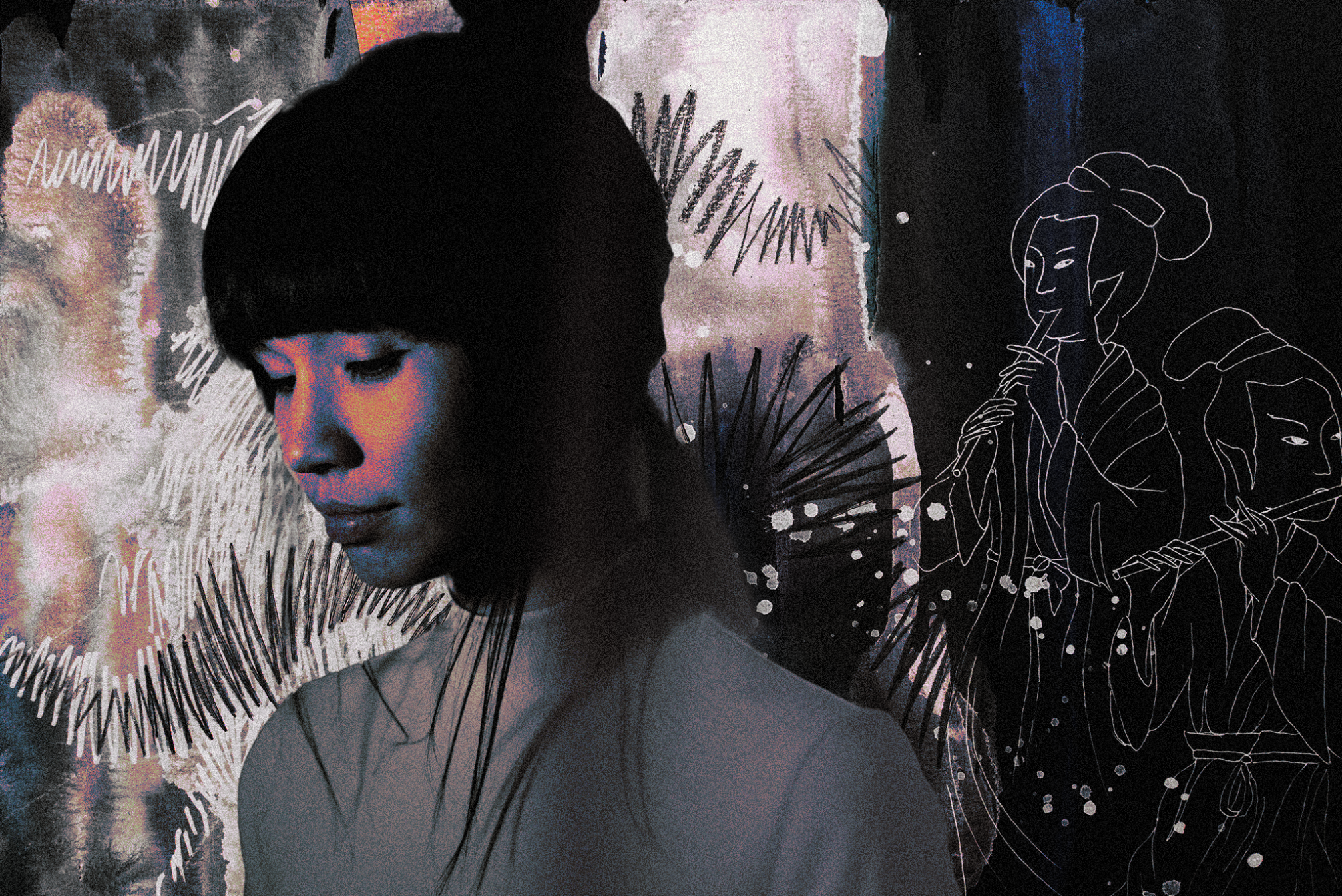
Enlighten us about your multidisciplinary collective and label which you set up in 2018, IO.
This project has its origin in deep friendship. Many of us went to the same musical high school back in the day and shared many rave experiences at countless drum'n'bass events. Before the label and collective were formed like it is today, there was another label called mem:bran, also run by almost the same people. Bass music was the focus of it, but it turned out a bit chaotic which is why my friends stopped it. Then IO was founded instead with the vision to do this one in a more professional way with a more accurate vision which actually worked out pretty well. IO is supposed to be a platform for our circle of friends as we are all producers and many of us are also visual artists. Each of us has our own style, we started with deep techno and ambient, but nowadays we are opening up to more genre fusions like with our new member Tenzia for example.
Our main base is Munich as most of us live here or close by, it is very important for us to have regular gatherings during which we collaborate on various projects such as music production and more recently also software development for audio software (it’s still in the process, we’ll announce the exact details later).
You then launched your own label in 2022, QEONE. How’s that going?
It’s going very well, we are looking at a year with many amazing upcoming releases by newcomers but also established artists. Can’t wait to put them out, the first one is the ‘Mind Spectrum’ EP by the French producer Vardae.
Additionally, we recently started a new series in which we share live sets, the first one was recorded by Armenian artist Innersha. I can really recommend this one, such a talented artist in the area of faster deep techno with trancey and organic elements.
It’s a pleasure to see the label growing well, it brings me so much joy to work with all those artists and to think about how to shape the ideas of this project. It feels really rewarding to push little musicians and to support the sound aesthetic I am striving for.
You've previously stated in interviews about embracing musical diversity. How does exploring so many genres and styles impact your creative process?
It keeps my mind fresh and nourishes my creative spirit with new ideas. It’s important for me to avoid creative downs, and this can only be achieved by being as open as possible towards any kind of style and by trying new things all the time. To put elements from different genres together can create a whole new world. Things which people normally avoid or say they don’t like in a particular kind of style have to be tried out, there is always a way to make it work. Sticking to the same kind of idea about music destroys the creative mind over time from my point of view.
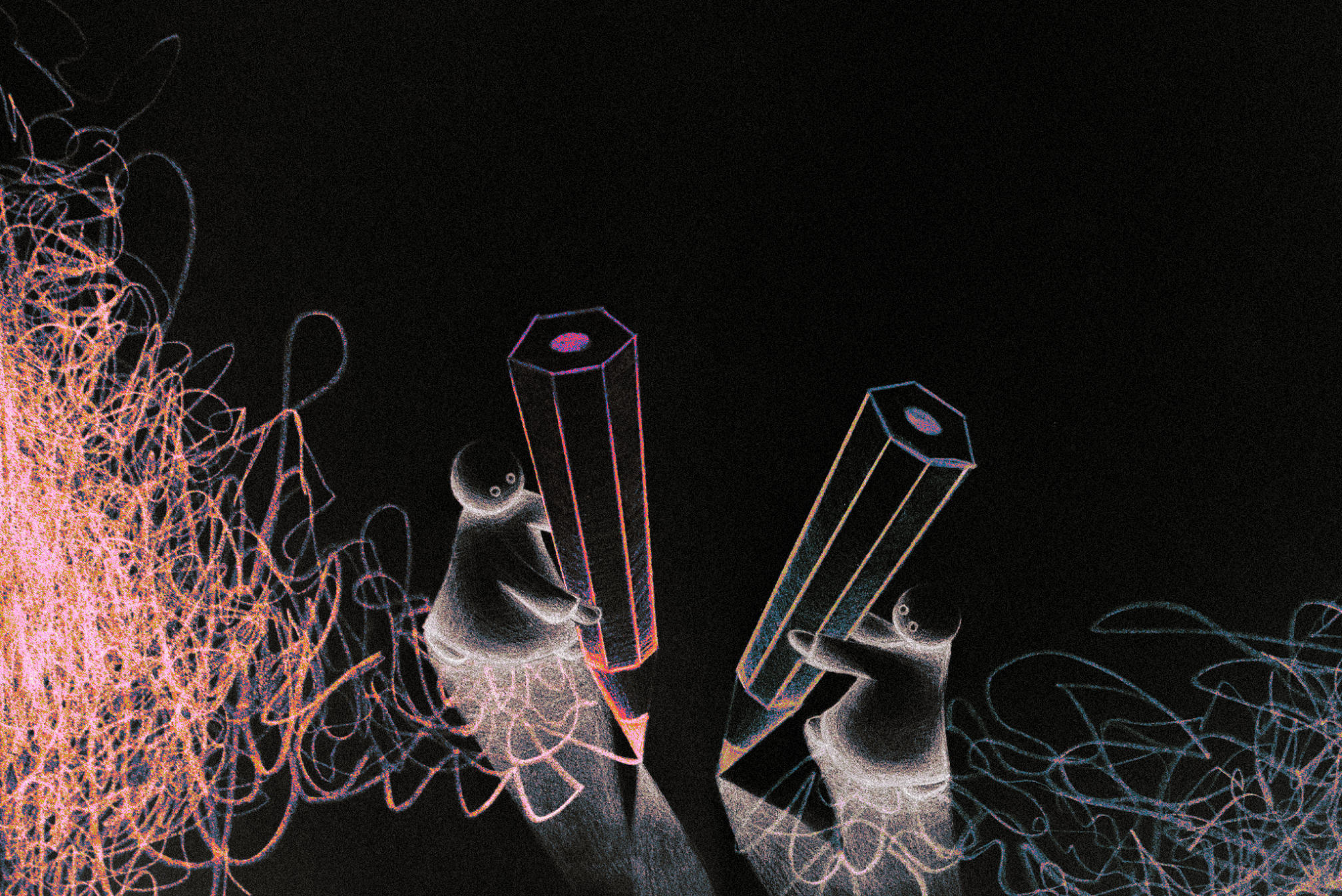
What qualities do you seek in ambient music?
I like it the most when it is very minimalistic with a focus on the sound design of the few main elements used. No matter if dark, dreamy, peaceful or humorous, I like all of those moods when it comes to ambient music. It can be very distorted or crystal clear sound design, it really depends on my mood while listening. In my own work, I started off with dark ambient which expressed my negative emotions at that time. But I also love to build light cloud castles with my sound, it really depends on how I feel in that moment. I love the fact that there is not necessarily a rhythmic grid, this opens up the creative process a lot. Everything is allowed, there are no rules that certain things have to be done in order to make people dance. It’s great artistic freedom.
Who are you musically inspired by?
I am very inspired by the Band Salomea, Dubstep producer Kercha, saxophonist and producer Sam Gendel, Chinese artist Linfeng, legendary Photek, Jameszoo, Danny Wabbit and many more.
What’s the vibe like in your studio space?
The things which directly catch the people’s eyes who visit me in my studio are the countless plants, our three animals (my two cats and my bf’s dog) and all my acoustic instruments. It’s a very multifunctional room as it is a home studio. I use the room for music production, DJing, relaxing with my friends on the couch, doing yoga, creating analogue art, gaming in VR, practising my instruments, transforming it into a pop-up photo studio etc.
Even though I have so many activities which I do in this room, I managed to keep the aesthetics as minimalistic as possible (besides the many plants). In the centrum I have a little indoor fountain, calming my senses with the tiny sound of moving water. The room itself has about 23 sqm. It looks a bit like a jungle music room with green, white and brown wooden colours. I have a height adjustable working desk which I am very thankful for as it makes my body feel so much better. I have no synthesizer or drum machines, all the music happens on my tower PC or on my instruments. I have amazing monitors manufactured by a German company called Abacus, I really like them.
My ideal working day routine is to get up, brush my teeth, prepare my big herbal tea for the day, do 20 minutes of Yoga, and then start working. Recently I am trying to answer all mails and messages later during the day and start off instead with bigger tasks like producing, doing a cover artwork or other things which require a lot of clear headspace.
Name one favourite production tool or resource that you can't do without.
Ableton Operator.
There's a very celestial and organic touch to your productions and sets. Does your love for nature have a role to play in your creative process?
I guess it plays the biggest role of all. As mentioned, my studio and also the rest of our apartment are completely full of plants. I am deeply fascinated by nature, I would almost call it my religion if I am honest. I think that the rules of nature can teach us so many things about ourselves and about how to tackle problems in life. I love to care for my plants and to understand how they work and grow, it’s truly magical! Nature appears in so many shapes and colours, it offers countless interesting stories about every imaginable subject. It can be really funny but also sad, it can be so harsh, loud and peaceful at once.
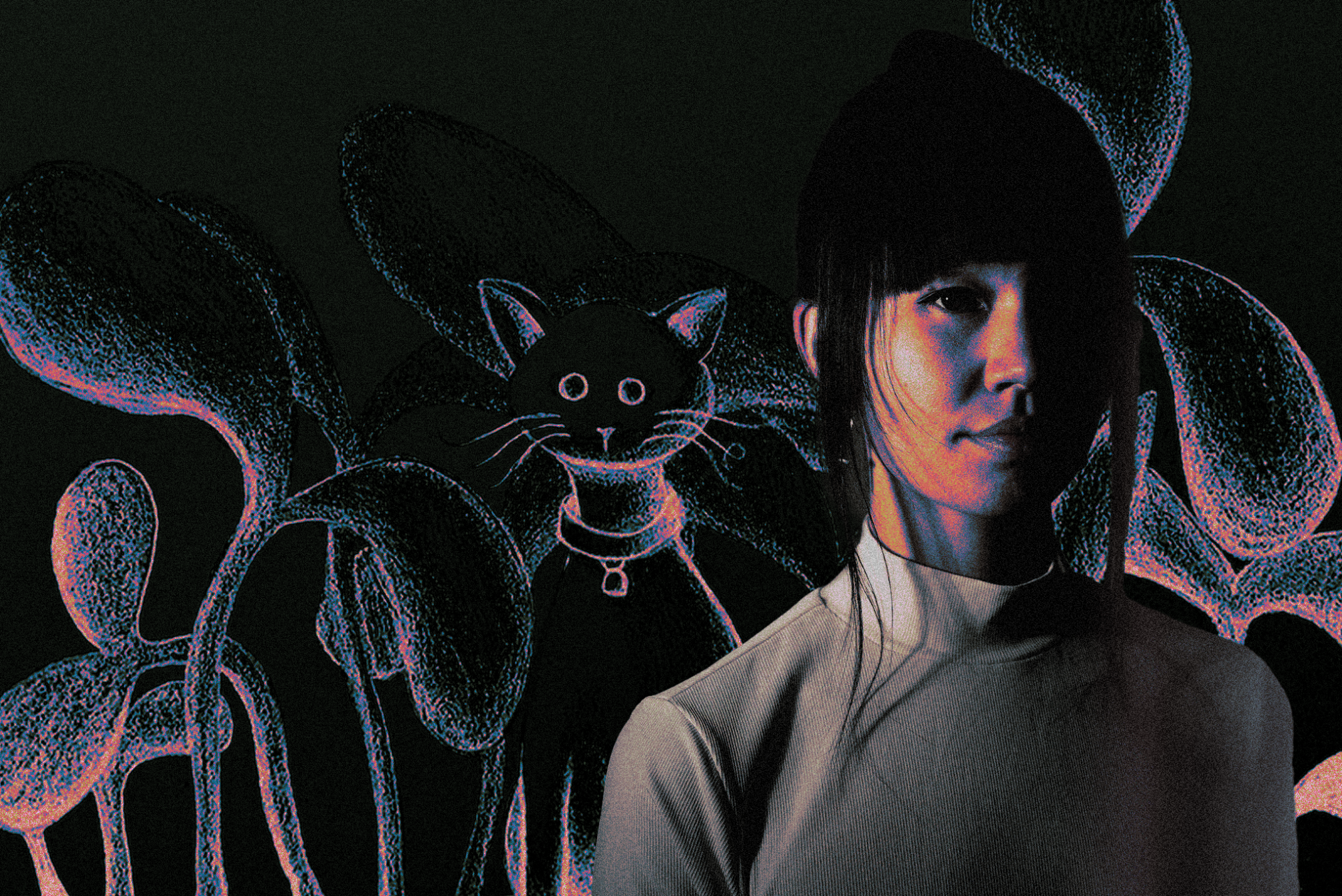
Speaking as a multi-hyphenate artist, and a nature-lover, what are your thoughts on AI’s growing role in music and creativity?
I think that AI will help us reach new levels of creativity. It will do the repetitive work for us and be the best assistant an artist can dream of. I don’t think that it will be dangerous for the real artists among us. The AI can only do things learned by its experience, the fed content. But if you are an innovative artist, everybody will see that. There have always been artists who try to imitate their idols, they will not reach any status by trying this with AI as the general quality level will rise with this technology. The criteria set by the audiences will change, and the formats will probably change, but to be on top of it as an artist, it is important to understand how it works and to utilise it for oneself in order to be stronger than ever.
My friend and colleague from IO, Tenzia, is our AI specialist and I can tell from the things he does visually with the AI, that he is a unique artist using this tool. There is a lot of AI art out there at the moment and I think that it is easy to recognise it. When I look at his material, I can also recognise it, but nobody but him has these ideas which makes him stand out again. Creative originality never vanishes, there is always a person behind it orchestrating the elements of the result. Without this person, the AI would do nothing.
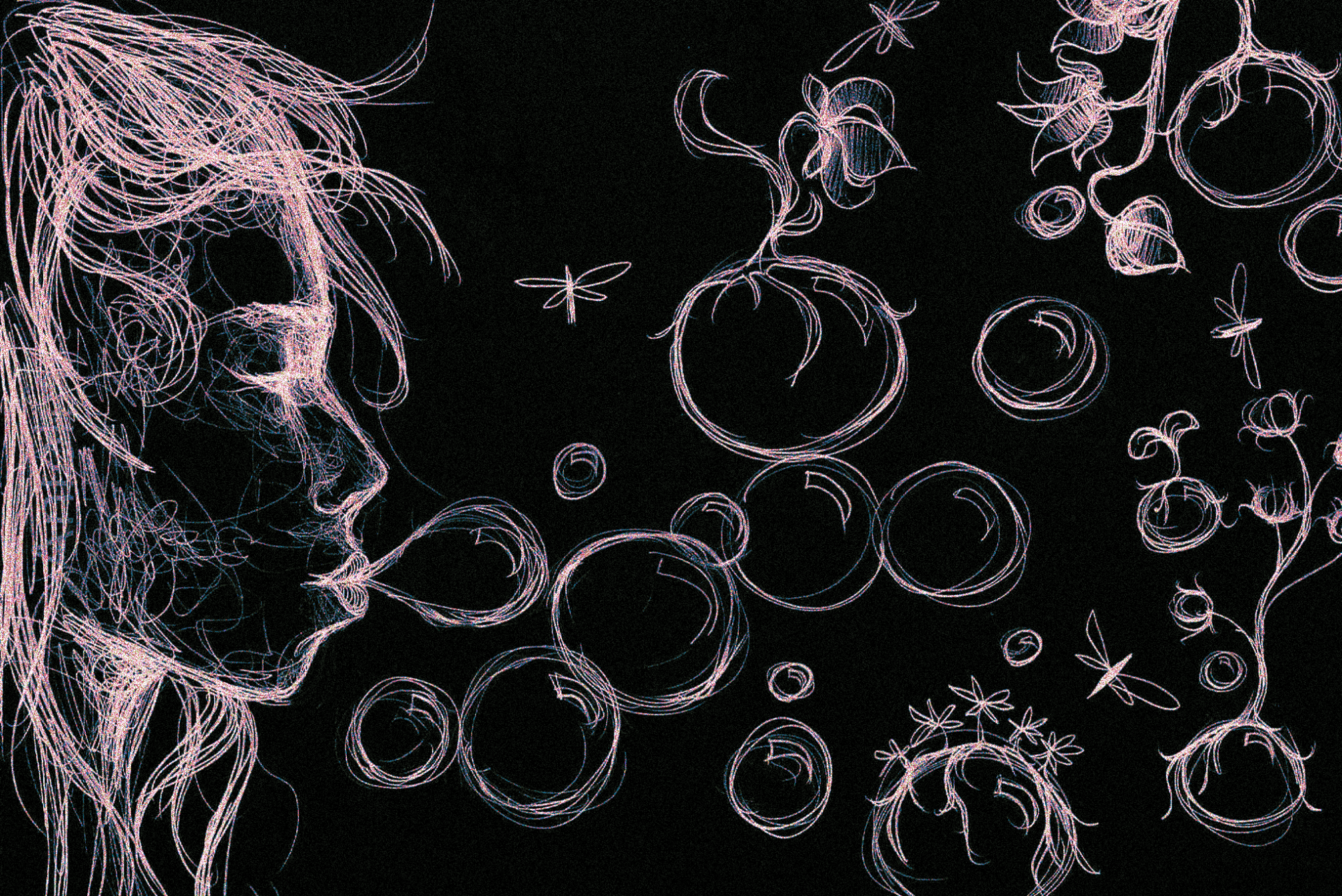
You toured around Asia for the first time last year and played shows in India, Bali, Japan, and Hong Kong; how was your experience and did you gain any valuable insights into scenes in the East?
I feel that each scene is very unique, every country has a different focus in electronic music. The people were highly respectful and very open minded in all the place I’ve been to.
The most special experience was Hong Kong for me due to the fact that I really miss being surrounded by Chinese-speaking people. It was magical to be told in Chinese that they like my music, I couldn’t believe my ears.
But also the other places have been really good to me, the people in India were very passionate about the events I played. The Antisocial Crew built their own beautiful scene from zero as well as the Qilla guys.
I knew the most about the Japanese scene as everybody was constantly talking about it, I enjoyed every bit of it. The audience was so invested in the sound, you don’t find such an atmosphere of respect and attentiveness in Europe. It was really impressive.
Unfortunately, I didn’t make it to Bali and Vietnam as scheduled, but I hope to get to know those scenes too at some point.
And do you have any plans to visit Asia again soon?
Yes, things are pointing towards winter 2024. Really excited already!
Your latest EP ‘Da Nao Tian Gong‘ is derived from the great classic Chinese novel ‘Journey to the West’. Can you tell us a bit more about your affinity for the animated story and how it inspired you?
I watched the cartoon many times during my childhood, it was definitely one of the most important things for me when I was little. I remember talking about it all the time with my parents.
This story contains a huge amount of inspiring thoughts about Buddhism and philosophy in general. Next to that, I love the sense of humour and cheekiness. It’s a legend showing a full spectrum of fantasy and life lessons. And especially this colourful and ornamental style of the animation especially catches my eye to this day. It is a big piece of art in my eyes which definitely has a deep spot in my heart. I exercised my Mandarin with it a lot by watching it over and over, it symbolises an element of the connection to my roots.
Any upcoming projects or collaborations that you're excited about and that we should look forward to soon?
There are two collab EPs coming up throughout the year. One of them is with Shoal, the other one is still a secret but really exciting.
Rice or noodles?
Uff…tough question. I’d say Rice. But yeah…it’s more a 50:50 thing, haha.
Polygonia ‘Da Nao Tian Gong‘ is out now on Midgar Records. Have a listen buy and buy your copy here.
Arun Ramanathan is Mixmag Asia’s Director. Follow him on Instagram.


